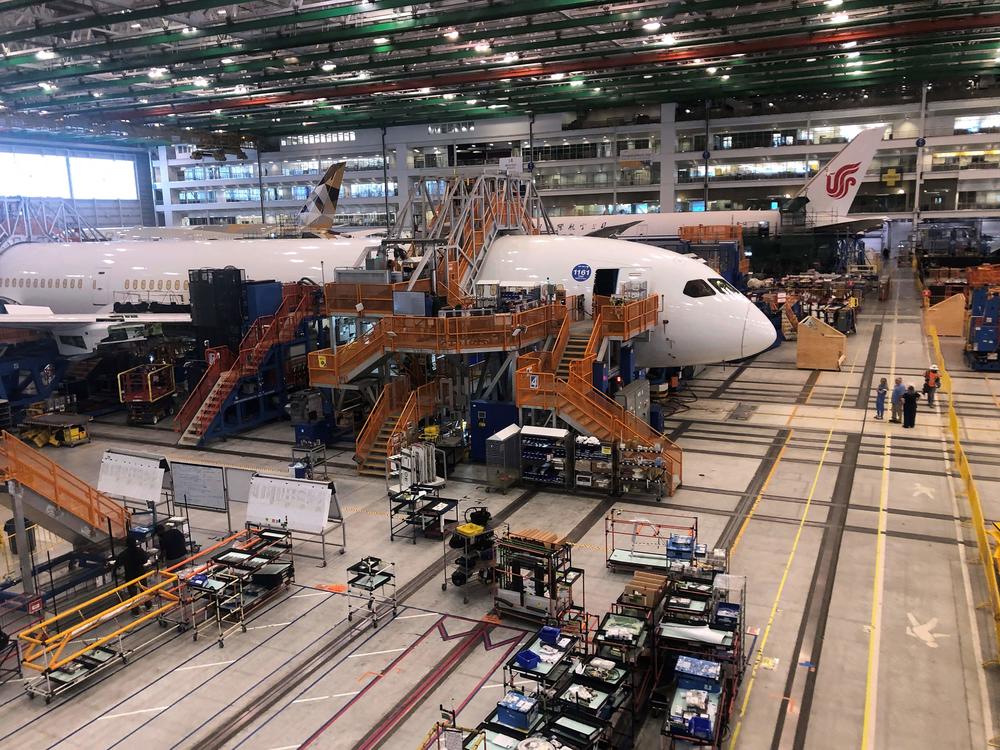Section Branding
Header Content
Boeing whistleblower John Barnett, who raised alarm over plane quality, is found dead
Primary Content
Police in Charleston, S.C., are investigating the death of John Barnett, a former Boeing quality control manager who became a whistleblower when he went public with his concerns about serious safety issues in the company's commercial airplanes.
Barnett's body was found in a vehicle in a Holiday Inn parking lot in Charleston on Saturday, police said. One day earlier, he testified in a deposition related to the string of problems he says he identified at Boeing's plant where he once helped inspect the 787 Dreamliner aircraft before delivery to customers.
Barnett was in the middle of giving deposition testimony in his whistleblower retaliation case against Boeing when he died, his lawyers, Robert Turkewitz and Brian Knowles, told NPR.
"He was in very good spirits and really looking forward to putting this phase of his life behind him and moving on," the South Carolina-based attorneys said in a joint statement. "We didn't see any indication he would take his own life. No one can believe it."
Police said officers were sent to the hotel to conduct a welfare check after people were unable to contact Barnett, who had traveled to Charleston to testify in his lawsuit against Boeing.
"Upon their arrival, officers discovered a male inside a vehicle suffering from a gunshot wound to the head," police said in a statement sent to NPR. "He was pronounced deceased at the scene."
The office of Charleston County Coroner Bobbi Jo O'Neal said that Barnett, who had been living in his home state of Louisiana after retiring from Boeing, died "from what appears to be a self-inflicted gunshot wound."
Charleston police said detectives are actively investigating the case and are awaiting a formal cause of death as they try to determine the circumstances surrounding Barnett's death.
Barnett, who spent decades working for Boeing at its plants in Everett, Wash., and North Charleston, S.C., had repeatedly alleged that Boeing's manufacturing practices had declined — and that rather than improve them, he added, managers had pressured workers not to document potential defects and problems.
"We are saddened by Mr. Barnett's passing, and our thoughts are with his family and friends," Boeing said in a statement sent to NPR.
Barnett, 62, made international headlines in April of 2019 when he and other former Boeing employees spoke to The New York Times about what he called shoddy manufacturing problems at Boeing. Barnett accused the company of adopting a culture that prioritized raw numbers and profits over quality — and by extension, passenger safety.
"As a quality manager at Boeing, you're the last line of defense before a defect makes it out to the flying public," Barnett told the newspaper. "And I haven't seen a plane out of Charleston yet that I'd put my name on saying it's safe and airworthy."
By the time the article appeared, Barnett had already filed a whistleblower complaint against Boeing, saying that his attempts to raise quality and safety problems had been ignored and that he was punished for continuing to flag them.
Barnett filed a whistleblower complaint against Boeing in early 2017; his case against the company was heading toward a trial this June, his family said.
"He was looking forward to having his day in court and hoped that it would force Boeing to change its culture," the family said in a statement shared with NPR by his brother, Rodney Barnett.
The family says Barnett's health declined because of the stresses of taking a stand against his longtime employer.
"He was suffering from PTSD and anxiety attacks as a result of being subjected to the hostile work environment at Boeing," they said, "which we believe led to his death."
When John Barnett was interviewed by Ralph Nader in 2019, he said health issues had persisted after he retired from the plane-maker.
"It's taken a serious mental and emotional toll on me," Barnett said — but, he added, the safety of the airplanes rolling off the production line remained his main focus.
"That's what my story is about, is telling my story enough to where the right people get involved to make sure that these airplanes are made correctly," Barnett said. "Because the 787 carries 288 passengers plus crew. So the last thing I want to do is wake up in the morning and see a 787 has gone down" because of one of the problems he identified.
"I mean, it's just, it keeps me up at night," he said.

